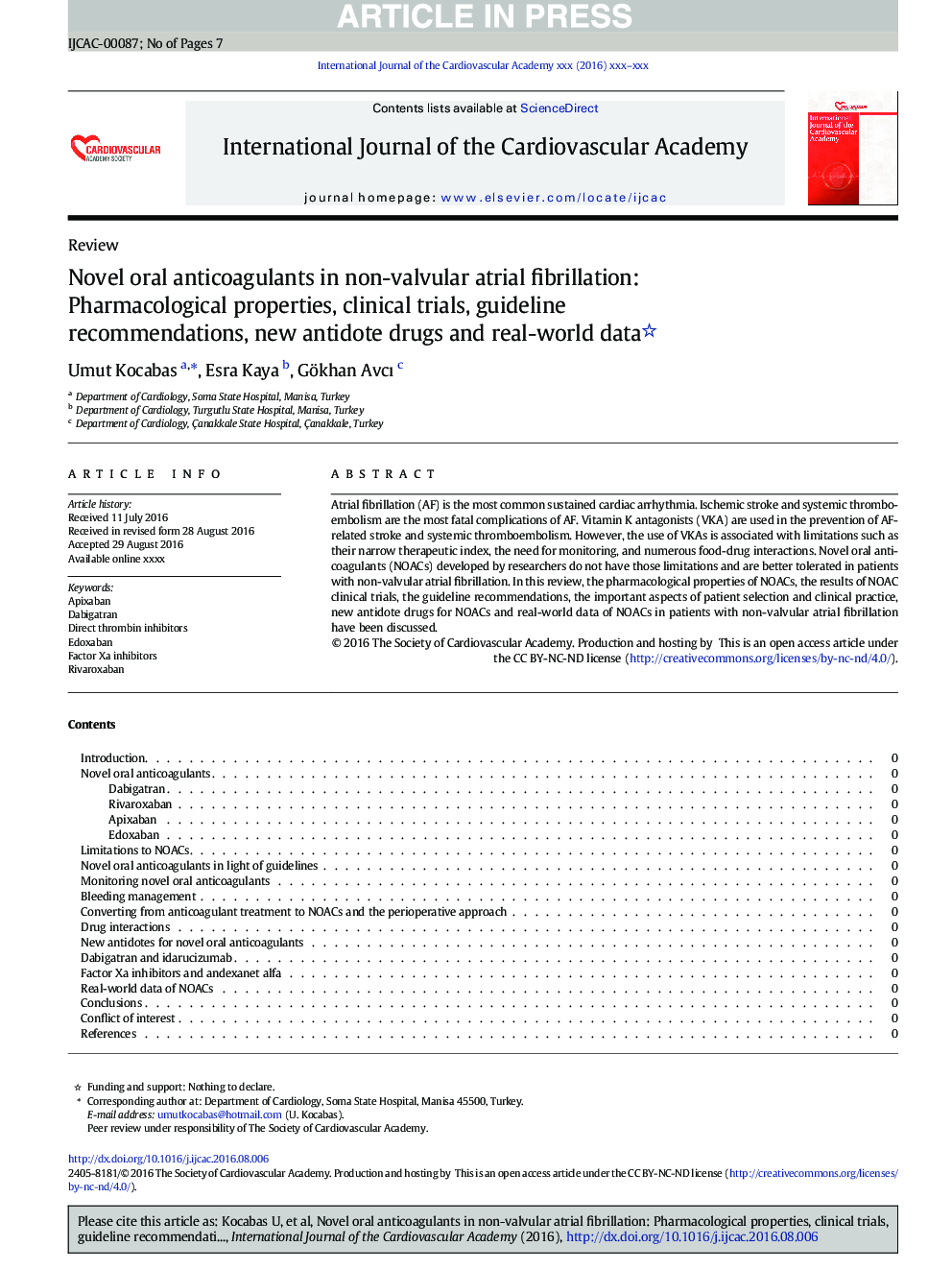| Article ID | Journal | Published Year | Pages | File Type |
|---|---|---|---|---|
| 8663118 | International Journal of the Cardiovascular Academy | 2016 | 7 Pages |
Abstract
Atrial fibrillation (AF) is the most common sustained cardiac arrhythmia. Ischemic stroke and systemic thromboembolism are the most fatal complications of AF. Vitamin K antagonists (VKA) are used in the prevention of AF-related stroke and systemic thromboembolism. However, the use of VKAs is associated with limitations such as their narrow therapeutic index, the need for monitoring, and numerous food-drug interactions. Novel oral anticoagulants (NOACs) developed by researchers do not have those limitations and are better tolerated in patients with non-valvular atrial fibrillation. In this review, the pharmacological properties of NOACs, the results of NOAC clinical trials, the guideline recommendations, the important aspects of patient selection and clinical practice, new antidote drugs for NOACs and real-world data of NOACs in patients with non-valvular atrial fibrillation have been discussed.
Related Topics
Health Sciences
Medicine and Dentistry
Cardiology and Cardiovascular Medicine
Authors
Umut Kocabas, Esra Kaya, Gökhan Avcı,
